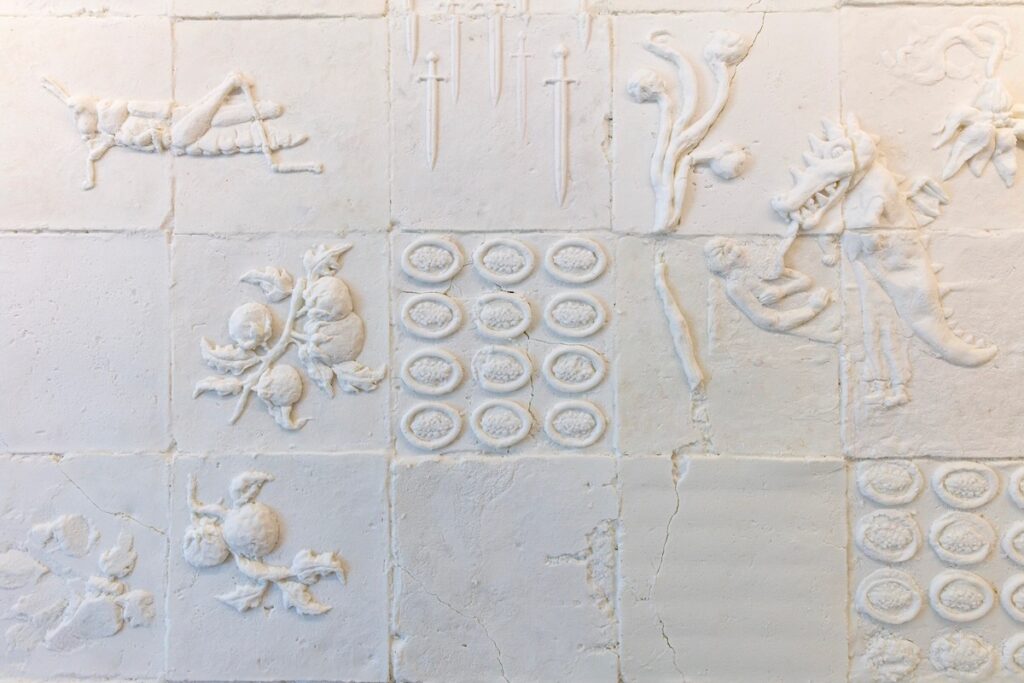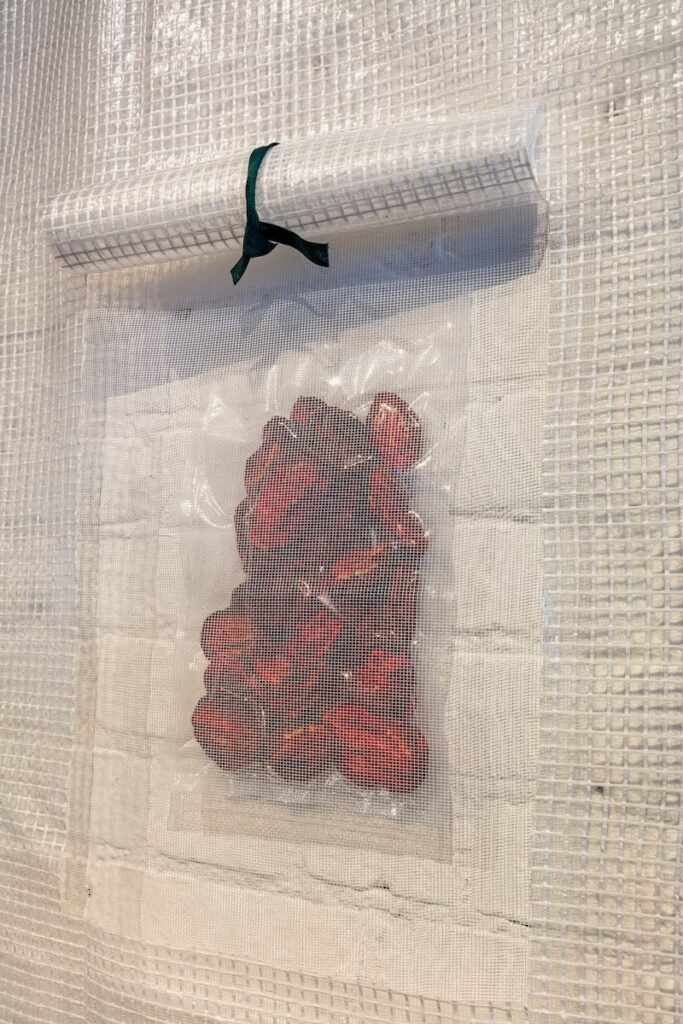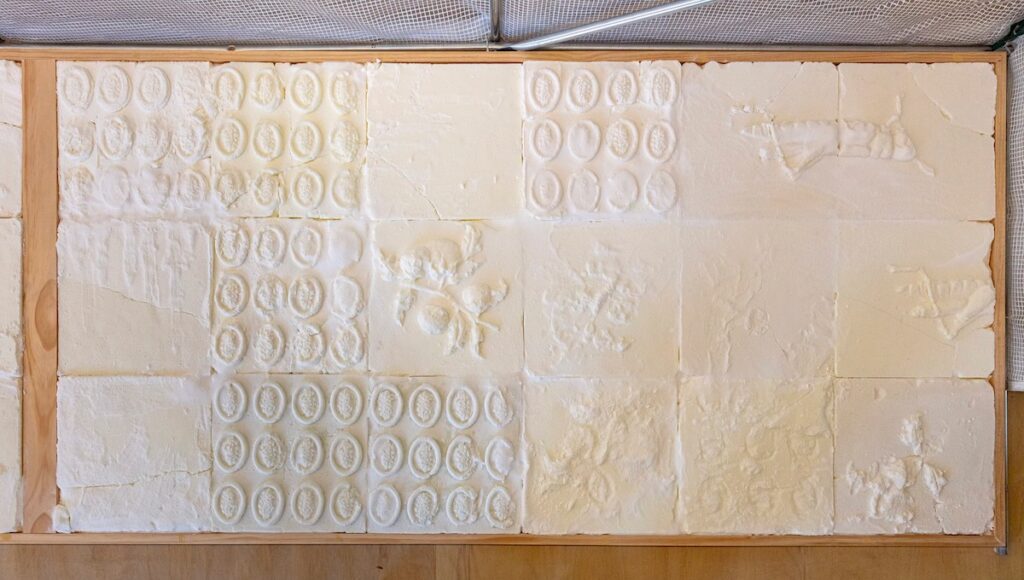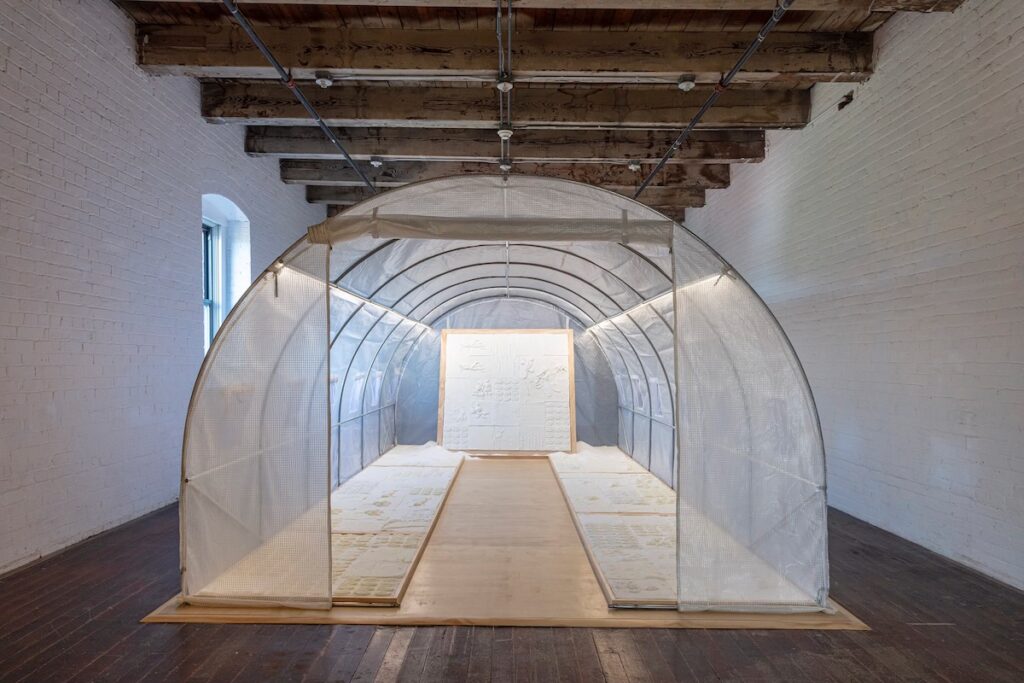At the Mattress Factory, Pittsburgh audiences are encountering salt in a new way: not as seasoning, but as sculpture. In Red Gold, Cairo-based artist Yasmine El Meleegy transforms this household mineral into an entry point for thinking about food, labor, and the fragile economies that sustain everyday life.

Red Gold by Yasmine El Meleegy Exhibits at the Mattress Factory
For her first U.S. solo exhibition, El Meleegy draws inspiration from the tomato fields of Egypt’s Nile Valley. There, in the hot summer sun, rows of freshly picked Roma tomatoes are laid out to dry. In just two weeks, their value multiplies twentyfold, transformed into the global commodity marketed as “sun-dried tomatoes.” This industry, once seeded with foreign aid money, has become both a lifeline and a pressure point for Egypt’s agricultural sector. The tomatoes themselves may appear simple—even humble—but behind them lie stories of monocropping, export markets, as well as the shifting balance between tradition and globalization. El Meleegy brings these complexities into the gallery through an installation that is both inviting and quietly unsettling.

Inside a greenhouse structure, she has lined the floor with fragile white tiles made from a mixture of salt, cornstarch, and water. Each tile is cast with imagery tied to the tomato economy: the crop itself, the insects that threaten its growth, the knives used to harvest it, even the toxic nightshade plants related to it. The structure takes shape as an archive of symbols, each one echoing the tension between sustenance and precarity.
At the threshold, visitors encounter a bag of vacuum-sealed tomatoes: not the real thing, but hand-painted replicas suspended in resin. The gesture is humorous and haunting, mimicking the familiar supermarket packaging that erases the labor and land from which these foods originate. The installation arrives at a moment when conversations around food systems are becoming more urgent, both in Egypt and in the U.S. In Pittsburgh, a city with its own
histories of industrial labor and agricultural decline, Red Gold resonates as a meditation on globalization’s costs.

Red Gold Comes at a Time Pittsburgh Needs it Most
Who benefits from these markets? Who bears the burden? And what happens when a once-profitable export, dependent on specific climate and economic conditions, no longer fits the calculus of global trade? El Meleegy’s research for the project took her to Luxor and nearby farming regions, where she spoke with workers about the promises and pitfalls of the sun-dried tomato trade. The artist’s fieldwork grounds the installation in lived experience, allowing the work to push beyond the aestheticization of agricultural labor and actually confront its contradictions.

Alongside the installation, the Mattress Factory is presenting a companion publication, Red and White Gold, produced in partnership with Ta3amana Publishing Project. The book extends El Meleegy’s inquiry into the language and politics of agriculture, a reminder that the story of what we eat cannot be told without attention to power. In Red Gold, salt crystallizes not only as a preservative, but as metaphor. It holds in place a fleeting moment in the global food chain, a moment as vulnerable to change as the tomatoes themselves.
Story by Shawn Simmons
Photos Courtesy of Tom Little
Subscribe to TABLE Magazine’s print edition.

